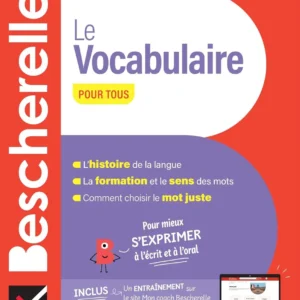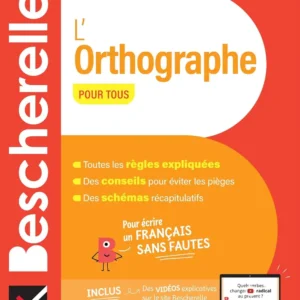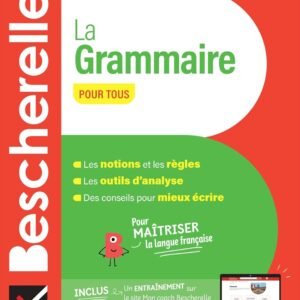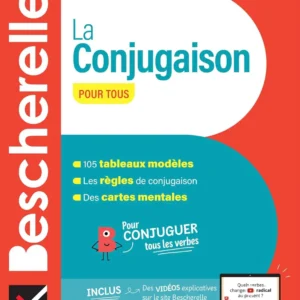French Conjugation Challenge: Test Your B2 Level with 14 Exercises
Test your mastery of French tenses with this conjugation challenge. 14 sentences to assess your B2 level. Discover your gaps and progress!
Why Mastering French Tenses is Essential to Reach B2 Level
Are you learning French and want to reach an intermediate-advanced level? Conjugation is the cornerstone of your progress. But how do you know if you truly master the essential tenses?
This article presents a complete conjugation challenge that tests your ability to correctly use:
- The present tense
- The simple future
- The imperfect
- The past tense (passé composé)
- The conditional present
Discover if you’re truly ready for B2 level!
The 5 French Tenses You Must Master
1. The Present Tense: The Essential Foundation
The present tense is the fundamental tense of the French language. But knowing regular conjugations isn’t enough. Have you mastered irregular verbs like être, avoir, aller, faire?
Test yourself with our challenge to see if you conjugate correctly in the present tense.
2. The Simple Future: Express Your Plans
The simple future allows you to express your intentions and projects. But watch out for pitfalls! Some verbs like pouvoir, savoir, avoir have irregular forms that many learners confuse.
Will you be able to conjugate these verbs correctly in the simple future?
3. The Imperfect: Tell Stories About the Past
The imperfect is the tense for narration, descriptions, and past habits. One important detail: the ending -ions in the first and second person plural. Many people forget it!
Discover if you truly master the imperfect by watching our test.
4. The Past Tense (Passé Composé): The Unavoidable French Tense
The passé composé is the most used tense in spoken French today. But it’s also the most complex: auxiliary être or avoir? Agreement of the past participle? Do these questions trouble you?
Our challenge will allow you to verify your understanding.
5. The Conditional Present: Politeness and Hypotheses
The conditional present is used to express politeness, a hypothesis, or a wish. It’s a less intuitive tense than the others, but essential for communicating naturally in French.
Test yourself to see if you use it correctly.
How Does This Conjugation Challenge Work?
Step 1: Test Yourself in Real Time
You’ll receive 14 sentences with a verb in the infinitive form. Your mission: conjugate the verb in the requested tense. You have 5 seconds to think and write your answer.
Not enough time? No problem! You can pause the video as many times as you need.
Step 2: Check Your Answers
After completing the test, you’ll receive all the detailed corrections. But be careful: it’s not just a list of answers. You’ll understand why each conjugation is correct.
The Scoring System: Are You at B2 Level?
You’re wondering what score to aim for? Here’s the scoring system:
- 12 correct answers out of 14 = Test passed
- Less than 12? Identify the tense that gives you the most difficulty and work on it specifically.

The 14 Questions of the Challenge
Ready to test your conjugation skills? Here are the 14 sentences. For each one, conjugate the verb in the requested tense. Take your time, and don’t hesitate to write down your answers before checking them in the video!
Question 1 – Past Tense (Passé Composé)
Conjugate the verb “aller” in the past tense:
“Je _____ à Paris.”
Tense: Passé composé | Verb: aller | Subject: je
Question 2 – Present Tense
Conjugate the verb “dire” in the present tense:
“Vous _____ la vérité.”
Tense: Present | Verb: dire | Subject: vous
Question 3 – Simple Future
Conjugate the verb “savoir” in the simple future:
“Tu _____ répondre.”
Tense: Simple future | Verb: savoir | Subject: tu
Question 4 – Imperfect
Conjugate the verb “parler” in the imperfect:
“Nous _____ ensemble.”
Tense: Imperfect | Verb: parler | Subject: nous
Question 5 – Conditional Present
Conjugate the verb “souhaiter” in the conditional present:
“Elles _____ partir.”
Tense: Conditional present | Verb: souhaiter | Subject: elles
Question 6 – Past Tense (Passé Composé)
Conjugate the verb “vivre” in the past tense:
“Il _____ 2 ans en France.”
Tense: Passé composé | Verb: vivre | Subject: il
Question 7 – Present Tense
Conjugate the verb “être” in the present tense:
“Nous _____ heureux.”
Tense: Present | Verb: être | Subject: nous
Question 8 – Simple Future
Conjugate the verb “pouvoir” in the simple future:
“Ils _____ partir.”
Tense: Simple future | Verb: pouvoir | Subject: ils
Question 9 – Past Tense (Passé Composé)
Conjugate the verb “venir” in the past tense:
“Vous _____ l’an passé.”
Tense: Passé composé | Verb: venir | Subject: vous
Question 10 – Imperfect
Conjugate the verb “mettre” in the imperfect:
“Elle _____ du temps à se préparer.”
Tense: Imperfect | Verb: mettre | Subject: elle
Question 11 – Conditional Present
Conjugate the verb “aimer” in the conditional present:
“Aimeriez-vous un café ?”
Tense: Conditional present | Verb: aimer | Subject: vous (polite question)
Question 12 – Present Tense
Conjugate the verb “faire” in the present tense:
“Vous _____ un exercice.”
Tense: Present | Verb: faire | Subject: vous
Question 13 – Past Tense (Passé Composé)
Conjugate the verb “apprendre” in the past tense:
“Je _____ le français à l’école.”
Tense: Passé composé | Verb: apprendre | Subject: je
Question 14 – Simple Future
Conjugate the verb “avoir” in the simple future:
“Tu _____ de bons résultats.”
Tense: Simple future | Verb: avoir | Subject: tu
Common Conjugation Mistakes to Avoid
Mistake 1: Confusing “Vous dites” and “Vous disez”
Many learners say “vous disez” instead of “vous dites”. It’s a very common mistake! Will you avoid it in our challenge?
Mistake 2: Forgetting the Agreement of the Past Participle
With the auxiliary être, the past participle agrees with the subject. Example: “Elle est allée” (feminine) vs “Il est allé” (masculine). Do you master this rule?
Mistake 3: Irregular Verbs in the Simple Future
Verbs like pouvoir (ils pourront, with 2 R’s) or avoir (tu auras) have irregular forms. Do you know them all?
Mistake 4: The Imperfect in the First Person Plural
At “nous” and “vous”, the imperfect adds an -i: “nous parlions”, “vous parliez”. Many people forget this detail!
Ready to Take the Challenge?
You’ve read this article and feel confident? Or on the contrary, do you realize that certain tenses are problematic for you?
It’s time to test your knowledge! Our 14-sentence challenge will allow you to:
✓ Identify your strengths in conjugation
✓ Discover the tenses that need work
✓ Understand the rules that are often forgotten
✓ Progress towards B2 level
How to Score Your Results
Once you’ve completed all 14 questions, it’s time to check your answers. But don’t just count the correct responses—pay attention to which tenses gave you the most trouble.
Here’s the scoring system:
- 12-14 correct answers = Excellent! You’ve mastered French conjugation at B2 level
- 10-11 correct answers = Good progress, but some tenses need reinforcement
- 8-9 correct answers = You’re on the right track, but focus on the problematic tenses
- Below 8 answers = Keep practicing! Conjugation requires regular work
Share Your Score and Results in the Video Comments!
Once you’ve completed the challenge, we’d like to know your score! Also tell us:
- How many correct answers did you get out of 14?
- Which tense gave you the most difficulty?
- Will you work on certain tenses again?
Your feedback helps us create content that’s even more suited to your needs.
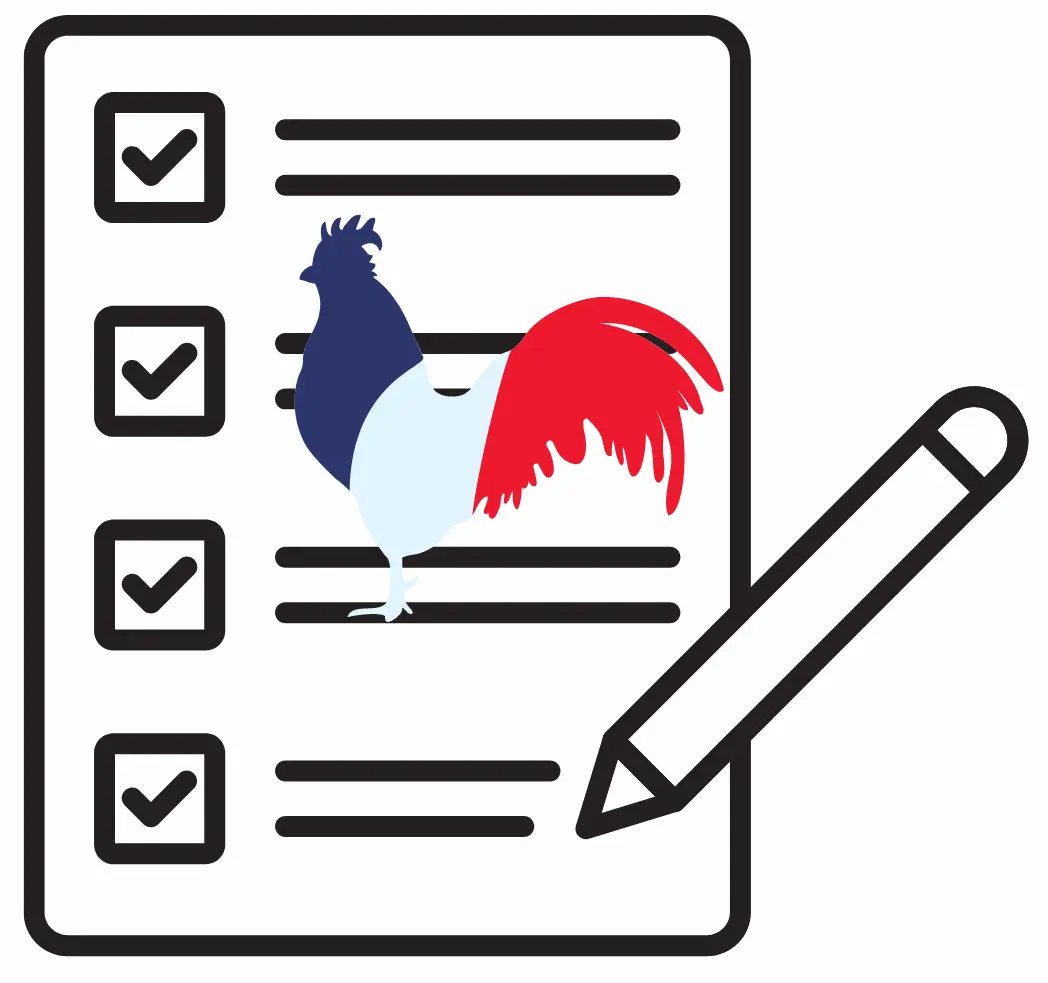

Watch the Complete Video for Detailed Corrections
This article gives you the framework and the 14 questions to test yourself. But to truly understand why each answer is correct and to master the nuances of French conjugation, you need to watch the complete video.
In the video, you’ll discover:
- Detailed explanations for each conjugation
- Common mistakes and how to avoid them
- Tips and tricks to remember irregular verbs
- The reasoning behind each grammatical rule
Don’t miss the opportunity to deepen your understanding!
Conclusion
French conjugation isn’t an exact science, but it follows precise rules. This 14-sentence challenge will allow you to test your B2 level and identify areas for improvement.
Are you ready to take on the challenge? Complete the 14 questions above, then watch the complete video to check your answers and understand the explanations. Share your score in the comments—your progress in French starts now!


